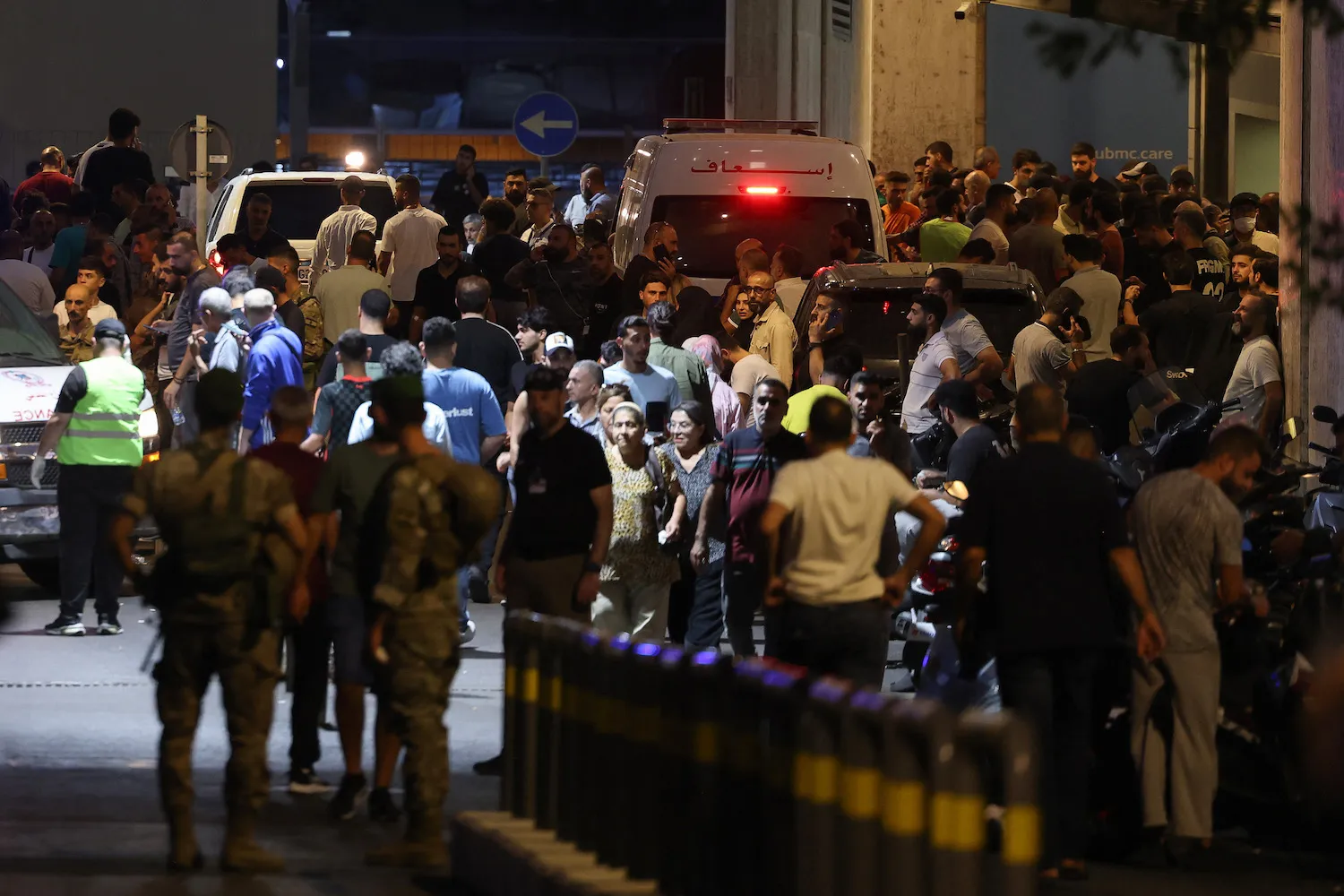Following Tuesday’s events, when Israel detonated Hezbollah pagers simultaneously across Lebanon and Syria, resulting in thousands of injuries and nine deaths, the fighting between Hezbollah and Israel continues.
The Israeli army announced via a post on X that it had struck Hezbollah military infrastructure in the Majdal Salem area of southern Lebanon last night. Fighter jets and warplanes targeted military sites in five areas: Al Adisa, Markaba, Blida, Maroun al-Ras, and Shehin.
Since Israel launched its war on Gaza last October, Israel and Hezbollah have been engaged in tit-for-tat attacks. However, the pager explosions mark a significant escalation in these ongoing tensions.
While Israel has not claimed responsibility for the attack, Reuters reported it as an unprecedented security breach for Hezbollah. The pager explosions killed nine people and injured nearly 3,000 in Lebanon and Syria, including Hezbollah fighters and Iran’s envoy to Beirut.
In a statement on Wednesday, Hezbollah declared, “The resistance will continue, as always, its operations in support of Gaza, its people, and its fighters. This is separate from the severe punishment the criminal enemy (Israel) should expect in response to Tuesday’s massacre.”
‘Mossad planted boards inside devices’
The pager plot had reportedly been in development for several months, according to sources cited by Reuters. A senior Lebanese security official disclosed that Hezbollah had ordered 5,000 pagers, which were brought into Lebanon earlier this year. The official stated that Israel’s spy agency, Mossad, had compromised the devices at the production stage.
“Mossad implanted a board inside the device containing explosive material that could be triggered by a code. It’s nearly impossible to detect, even with advanced scanners,” the source told Reuters.
The source added that 3,000 pagers exploded simultaneously after receiving a coded message that triggered the hidden explosives. Another security official told Reuters that up to three grams of explosives had been concealed in the new pagers, remaining “undetected” by Hezbollah for months.
In February, Hezbollah leader Hassan Nasrallah instructed members to stop using mobile phones, citing the risk of being tracked by the Israeli army. Since then, Hezbollah fighters have used pagers as a low-tech alternative to evade Israeli location tracking.
Taiwan pulled into Middle East politics after pager blasts
Taiwan’s vital tech industry has been inadvertently drawn into Middle East politics following revelations that thousands of exploding pagers used in the attack on Lebanon’s Hezbollah members were manufactured under the branding of the Taiwanese firm Gold Apollo.
The company’s founder, Hsu Ching-Kuang, has denied that his company manufactured the AR-924 model pagers that exploded en masse in Lebanon. He stated that these pagers were produced by BAC Consulting KFT, based in Budapest, Hungary, under a licensing agreement.
“According to the cooperation agreement, we authorise BAC to use our brand trademark for product sales in designated regions, but the design and manufacturing of the products are solely the responsibility of BAC,” the statement read, according to Al Jazeera.
However, analysts suggest that the incident raises troubling questions for Taiwan’s tech industry moving forward.
Lebanon receives support from Middle Eastern allies
A medical relief delegation from Iran’s Red Crescent has arrived in Lebanon to assist those injured in yesterday’s pager attack, local Iranian media reported. According to Iran’s Tasnim Agency, the team includes the president of the Iranian Red Crescent Society, along with 12 doctors and 12 nurses and paramedics.
Egypt’s Foreign Minister, Badr Abdelatty, has offered assistance to Lebanon and reaffirmed Cairo’s “steadfast support” after Tuesday’s deadly pager attacks. He conveyed President Abdel Fattah el-Sisi’scommitment to Lebanon’s security and stability and his rejection of any external threats to the country’s sovereignty, according to Al Ahram.
Jordan has offered medical aid to treat the thousands wounded in Tuesday’s “mass bombings,” while Iraq’s Kataib Hezbollah has proposed sending fighters and equipment to support the Lebanese armed group, according to Al Jazeera.
‘Silence is not an option. The bloodshed must end’
The Biden administration largely refrained from commenting on Tuesday’s mass detonation of pagers in Lebanon and Syria, emphasizing that the U.S. was not involved and had no prior knowledge of the operation, which is widely attributed to Israel.
Lebanon’s ambassador to the UN, Hadi Hachem, described the attack as “aggression that rises to a war crime.”
Iranian Foreign Ministry spokesman Nasser Kanani condemned it as “a terrorist act by the Zionist regime… an example of mass murder.”
Belgium’s Deputy Prime Minister Petra De Sutter condemned the “terror attack” that has injured thousands. In a post on X, she called it a “brutal escalation of violence,” stating, “Silence is not an option. An international investigation is necessary, and the bloodshed must end.”
Hezbollah Secretary General Hassan Nasrallah is scheduled to address the pager detonations in a speech at 5 PM on Thursday.
Meanwhile, Israel’s broader strategy remains unclear, leaving its next steps unanswered.


